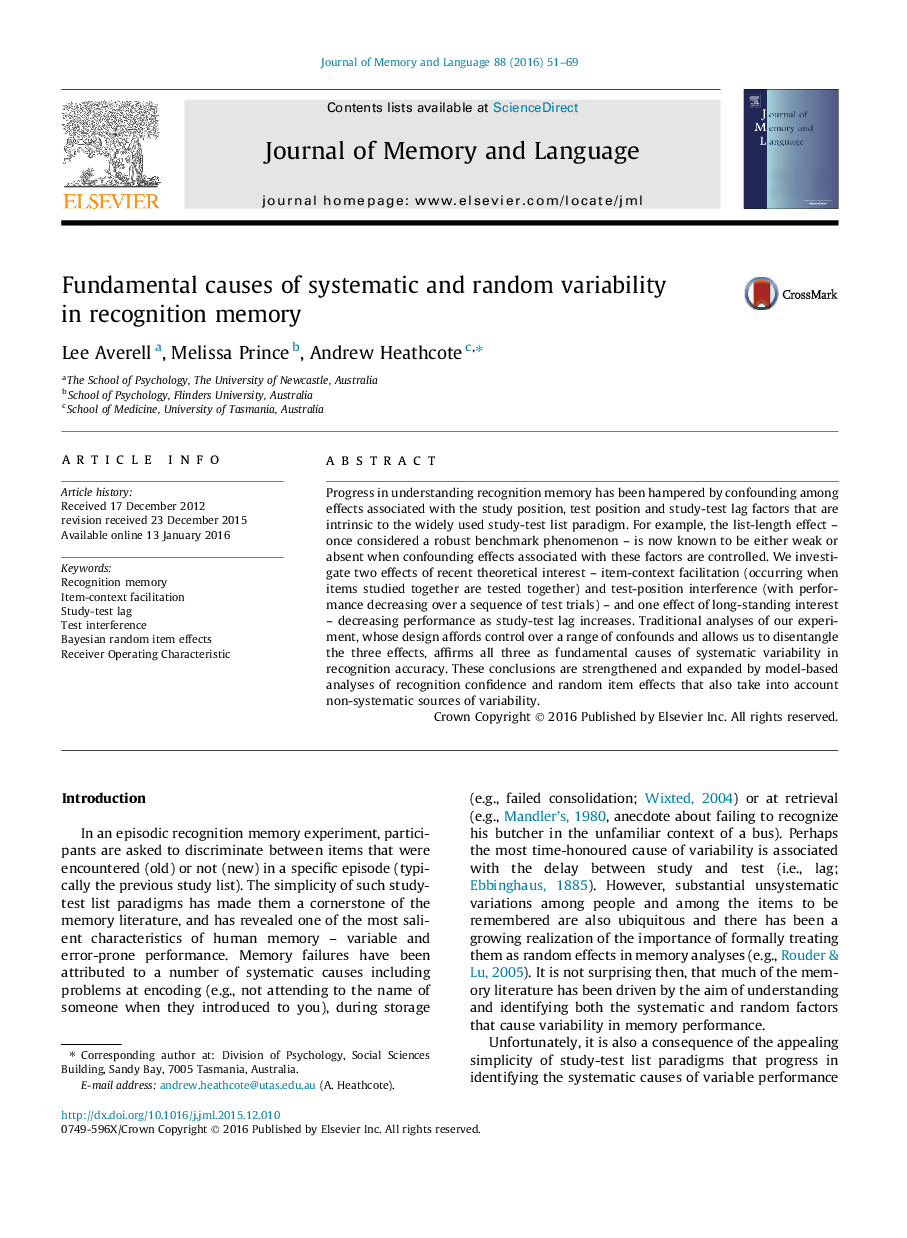| Article ID | Journal | Published Year | Pages | File Type |
|---|---|---|---|---|
| 7296925 | Journal of Memory and Language | 2016 | 19 Pages |
Abstract
Progress in understanding recognition memory has been hampered by confounding among effects associated with the study position, test position and study-test lag factors that are intrinsic to the widely used study-test list paradigm. For example, the list-length effect - once considered a robust benchmark phenomenon - is now known to be either weak or absent when confounding effects associated with these factors are controlled. We investigate two effects of recent theoretical interest - item-context facilitation (occurring when items studied together are tested together) and test-position interference (with performance decreasing over a sequence of test trials) - and one effect of long-standing interest - decreasing performance as study-test lag increases. Traditional analyses of our experiment, whose design affords control over a range of confounds and allows us to disentangle the three effects, affirms all three as fundamental causes of systematic variability in recognition accuracy. These conclusions are strengthened and expanded by model-based analyses of recognition confidence and random item effects that also take into account non-systematic sources of variability.
Related Topics
Life Sciences
Neuroscience
Cognitive Neuroscience
Authors
Lee Averell, Melissa Prince, Andrew Heathcote,
